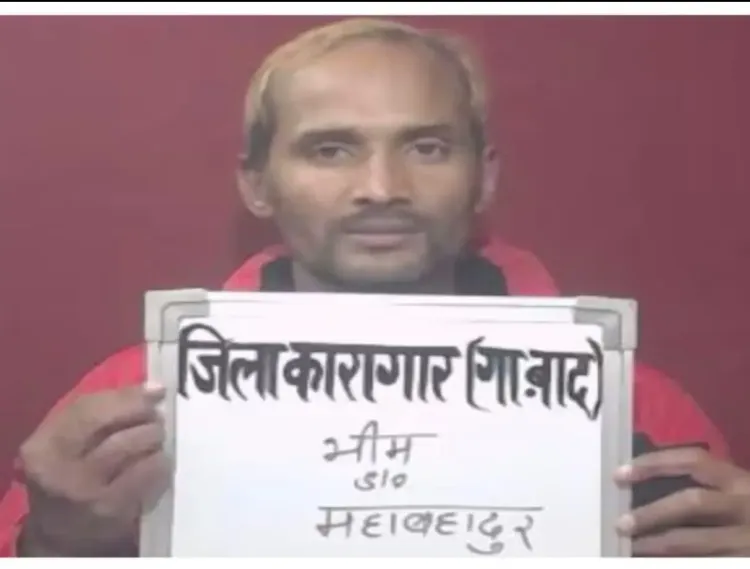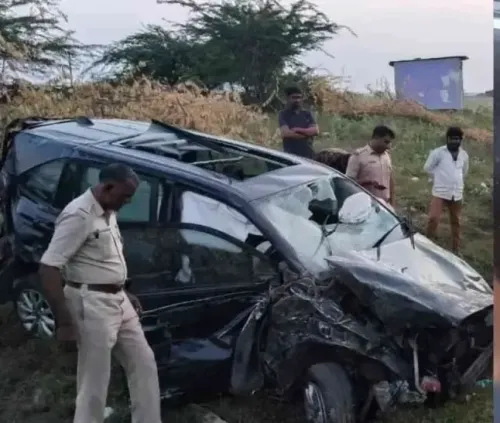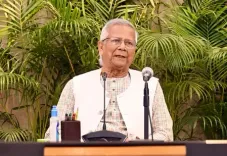How Was Nepali Gangster Bhim Jora Killed in Delhi Police Encounter?

Synopsis
Key Takeaways
- Bhim Jora was a key figure in organized crime in India.
- His gang utilized fake identities to infiltrate high-profile homes.
- The police operation demonstrated effective coordination between law enforcement agencies.
- Jora was involved in serious crimes, including murder and burglary.
- The successful encounter highlights ongoing efforts to combat transnational crime.
New Delhi, Oct 7 (NationPress) A Nepali gangster known as Bhim Mahabahadur Jora, who had been evading capture, was fatally shot during a police operation at Astha Kunj Park, located near Nehru Place in New Delhi, according to officials on Tuesday.
The operation was a coordinated effort between the Gurugram Crime Branch (Sector 43) and the Delhi Police's Special Staff late Monday night.
The 30-year-old criminal, who had a cash reward of Rs 1 lakh for information leading to his arrest, was implicated in numerous serious offenses, including murder, dacoity, and a recent Rs 20 lakh burglary at the residence of a BJP functionary in Gurugram, Haryana, as reported by the police.
Authorities recovered a sophisticated automatic pistol, a live round, empty cartridges, and a bag filled with tools for breaking and entering.
The operation was spearheaded by Inspector Narendra Sharma from the Sector 43 Crime Branch.
Following a specific tip-off about Jora's whereabouts at Astha Kunj Park with an accomplice, the joint teams cordoned off the area.
As law enforcement approached, Jora opened fire in an attempt to escape. Inspector Sharma narrowly avoided injury as a bullet struck his bulletproof vest.
Despite several warnings to surrender, Jora continued to fire at the police. In the ensuing exchange, he was critically injured and transported to AIIMS Trauma Centre, where he later died from his injuries. His accomplice managed to flee in the darkness.
Authorities state that Jora, originally from Nepal, was the suspected leader of a transnational Nepali dacoity and theft syndicate. He had been on the run for almost 17 months after being linked to the brutal murder of Dr. Yogesh Chandra Paul, a 63-year-old physician, during a robbery in Jangpura, New Delhi, in May 2024.
Alongside five others, Jora was implicated in the doctor's death during the burglary. While he evaded capture, four of his accomplices were apprehended in connection with the crime, according to police records.
Investigations revealed that Jora led a well-organized gang that infiltrated various Indian cities using counterfeit Aadhaar cards. Members of the gang, both male and female, primarily from Nepal, posed as domestic workers in affluent households across Delhi, Gurugram, Mumbai, Bengaluru, and Surat.
Once they gained the trust of their employers, they executed meticulously planned robberies — often drugging victims or holding them hostage — before fleeing with cash, gold, and other valuables back to Nepal, according to officials.
Jora had multiple pending criminal cases in Delhi and Gurugram, and his usage of fake identities made it exceedingly challenging for law enforcement to locate him.
Officials noted that the successful neutralization of Jora was a result of effective coordination and intelligence-sharing between the police forces of Delhi and Gurgaon.









